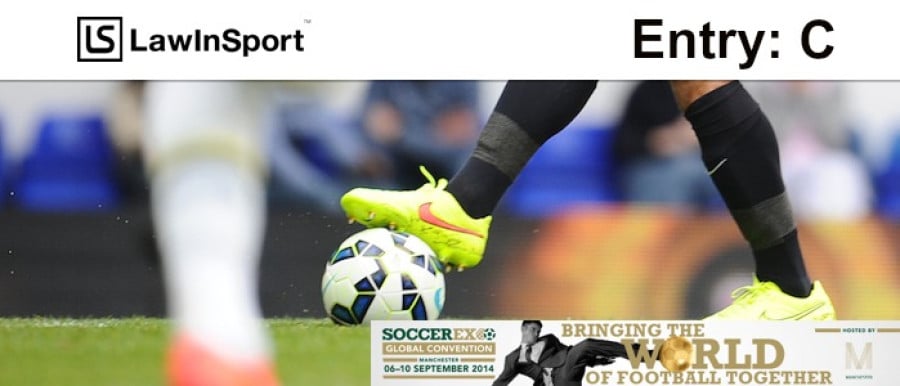FIFA’s new Regulations on Working with Intermediaries explained

In this article Jonathan Himpe will explain the new Regulations on Working with Intermediaries and highlight the most important differences with the current Players’ Agents Regulations.
New Regulations for players’ agents as from 1 April 2015
After widespread discussions and lengthy consultations, the new FIFA Regulations on Working with Intermediaries will finally come into force on 1 April 20151. The new Regulations will supersede the FIFA Players’ Agents Regulations and abandon the current licensing system for players’ agents: all existing licenses will lose validity with immediate effect and shall be returned to the associations that have issued them2.
The thread of the new Regulations is no longer to regulate access to the activity of players’ agents, but instead to provide an overarching framework for a better control of the activity itself by laying down (new) minimum standards and requirements and by installing a registration system for intermediaries who represent players or clubs in the conclusion of employment contracts and transfer agreements3.
The difference between intermediaries and players’ agents
The new Regulations define an ‘intermediary’ as “[a] natural or legal person who, for a fee or free of charge, represents players and/or clubs in negotiations with a view to concluding an employment contract or represents clubs in negotiations with a view to concluding a transfer agreement”4.
As from the first reading of the abovementioned definition, it already becomes clear that the concept of an intermediary is much broader than that of a players’ agent5:
- the new Regulations provide that also legal persons can act as intermediaries (whilst under the old Regulations players’ agents could only be natural persons);
- intermediaries offering agency services free of charge are also explicitly targeted by the new Regulations (whilst the old Regulations were only applicable when a fee was paid);
- also the core activity of the intermediary is defined more broadly, namely as ‘representing’ players and/or clubs in their legal relations (instead of simply ‘introducing’ the contracting parties to one another).
Furthermore, intermediaries will no longer be required to hold a license, which until now was only issued by the national associations after having passed a tough multiple-choice examination6. Also the requirement to obtain a professional indemnity insurance (or, alternatively, a bank guarantee) is abandoned7. Some critical voices have already expressed their concern that such reforms may not be in the players’ best interest8.
Finally, the requirements that the intermediary must have an impeccable reputation9 and may not hold a position as an official, are maintained10.
The registration system for intermediaries
For the sake of transparency, a registration system for intermediaries shall be put in place at member association level, whereby intermediaries shall be registered each time a player or club engages the services of an intermediary when concluding an employment contract or a transfer agreement11. Registration is equally required in the event of renegotiation of an employment contract12.
As an indispensable part of the registration procedure, all intermediaries will have to complete a mandatory Intermediary Declaration which will then need to be submitted to the association of the club with which the player signed his employment contract13. If, in the event of a transfer agreement, the releasing club engaged the services of an intermediary, that club shall also submit a copy of the Intermediary Declaration to its own association14.
To continue reading or watching login or register here
Already a member? Sign in
Get access to all of the expert analysis and commentary at LawInSport including articles, webinars, conference videos and podcast transcripts. Find out more here.
- Tags: FIFA | Football | Governance | Regulation | Soccerex
Related Articles
- Protecting English football’s heritage: Hull City v Hull Tigers - Entry A
- Refusal to delivery the ITC in international transfers of football players and free movement of workers within the EU - Entry B
- Whom to sue before the Court of Arbitration for Sport (CAS)?
- Planning the breakup: the relationship between clubs and managers
- LawInSport at Soccerex Global Convention 2014
Written by
Jonathan Himpe
Jonathan Himpe is an attorney-at-law based in Antwerp (Belgium), who’s expertise lies mainly in the field of tax law and sports law. He regularly advises football players and their agents across a broad spectrum of sports law issues and, in case of litigation, represents them before court and/or (sports) arbitration panels. Jonathan is also a member of the Disciplinary Committee of the Flemish Taekwondo Union.

 Global Summit 2024
Global Summit 2024